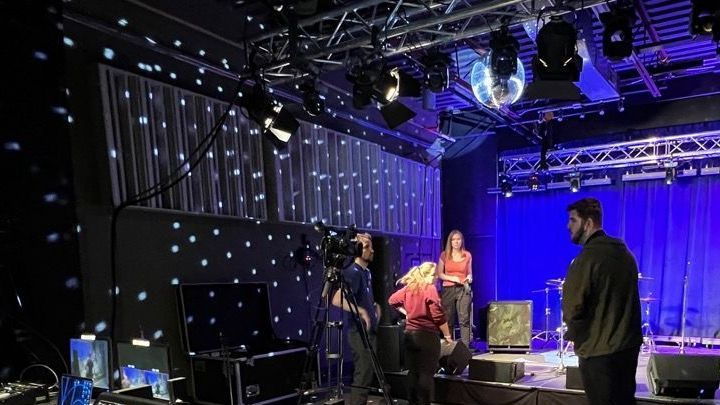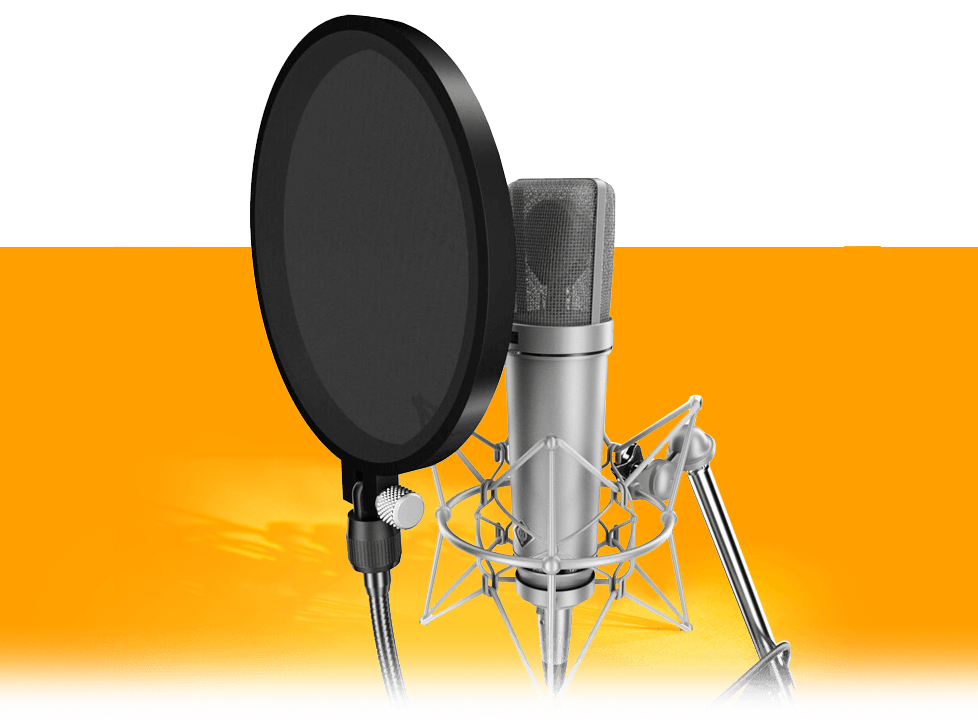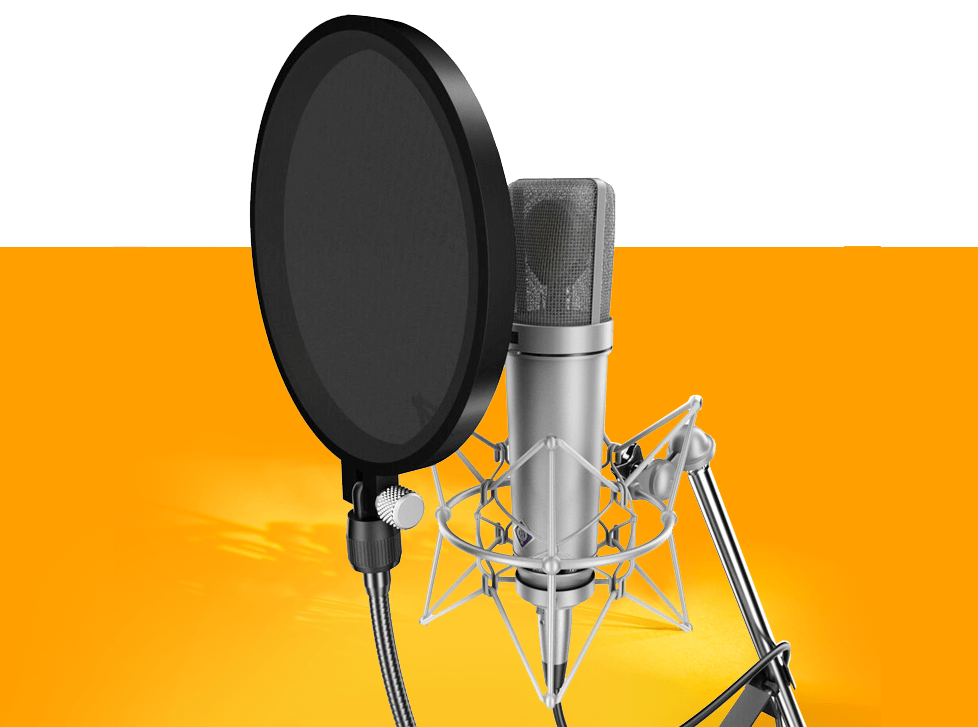Live Sound Engineering 101: Getting Started with Live Sounds
Jeremy Alves | July 18, 2023
Live events are at the core of a performing artist’s career, corporate events, and even performances at your local bar. The performers write the song or speech, rehearse, and then walk on stage expecting to carry out what they’ve practiced.
But sometimes, even if the performer does everything perfectly, the audience can still feel like it was a bad show. Why? Because the live sound engineer dropped the ball.
Conversely, a live sound engineer can significantly enhance the audience’s experience by making sure everyone in the venue can hear what’s happening on stage at the highest possible quality.
The goal of a live sound school is to prepare students for a long, successful career as live sound engineers. The skills and training necessary to be an effective engineer vary quite dramatically from other roles in the world of audio, and it’s a much more complicated discipline to teach yourself as well.
So let’s explore exactly what live sound engineers do and how it varies from other similar sounding roles, and you can get started forging your next career.
What is Live Sound Engineering?
Live sound engineering is the practice of properly configuring and operating the technical aspects of a live performance, which can include anything from a mainstream artist’s concert in a massive venue to a corporate event in a hotel.
The core goal of the engineer is to ensure that the sound being made by those on stage is heard clearly by everyone in the audience. While that goal might seem simple, executing it depends on having a robust understanding of sound physics, a significant amount of gear knowledge, and the ability to work effectively under pressure.
For some, live sound engineering is an exciting career where no two days are the same, you get to work with the latest and greatest gear, and you work with a team to execute a flawless live event. These unique attributes can make it more appealing to some students than other roles, such as music producer or audio engineer.
Live Sound Engineering vs. Audio Engineering
“Engineer” is a common job title in the world of audio and is usually preceded by a specific discipline, such as a live sound engineer. Other roles are audio engineers, sound engineers, and music engineers, which all describe different and specific engineering applications.
The core distinction between live sound engineering and other types of audio engineering is the focus on live events. Audio, music, and sound engineers generally focus on studio sessions and work alongside a producer. They can also work in post-production for movies and shows or even work on video games.
Live sound engineers can undoubtedly work in the studio to help capture vocals and instruments, but the term is more commonly applied to engineering live events.
How to Get Started With Live Sound Engineering
So how do you start a career as a live sound engineer? You’ll start with the foundational knowledge, start developing applicable skills, and gain hands-on experience so you’re ready to work in the field. Let’s go through a high-level overview of beginning your new career.
Learn the Physics of Live Sound
An effective live sound engineer has a strong understanding of how sound works and moves throughout a venue. While a studio music producer only needs to worry about this when recording vocals or live instruments, a live sound engineer will consider how sound works at every event.
You’ll need to understand how sound moves through a venue, how it’s captured by microphones, and how the signal moves through all the involved gear. Additionally, you’ll want to know your way around a soldering iron, and know how electricity works at the fundamental level so you’ll know what every piece of equipment does.
For example, you need to know how the signal is modified when it goes through an amplifier and into a speaker or monitor. How do speakers and monitors use that signal to produce sound?
Gain a Strong Understanding of the Gear Involved
Gear is at the heart of a live sound engineer’s daily responsibilities. During pre-production, you’ll need to understand all available gear and how to use it effectively. Properly designing and configuring the technical components is a large part of what makes a compelling show.
Of course, you also need to know how to use all of the involved gear, including hot-fixing any issues that may arise during a performance. Some of the gear you’ll need to know how to use is:
- Mixing console
- Equalizers
- Crossovers
- Amps
- Speakers
- Monitors
- Subwoofers
There is certainly plenty more gear that you’ll need to learn about, both how it works and how to use it when working with live sound. For now, that list demonstrates the detailed expertise you’ll need to develop.
Feedback Mitigation
Feedback is one of the crucial elements of live sound mixing that can really ruin a performance. Live sound engineers need to know what causes feedback and how to prevent it from happening.
Feedback can be either mechanical or acoustic, which means there are many different ways it can be caused. Mechanical feedback happens when a loop is created by sending the signal back to itself. Acoustic feedback is created when a microphone hears its own sound, which is the most common form of feedback that can ruin a show.
You can prevent feedback with proper speaker placement, microphone placement, and several more configurations throughout the setup that eliminate or mitigate the possibility of acoustic feedback.
Since feedback can frustrate performers and audiences, avoiding it is a crucial job duty of a live sound engineer.
Hands-on Experience
Experience is everything in most job roles, and it’s a necessity for live sound engineers. You don’t just need to know how the equipment works; you need to use it directly.
Fortunately, you don’t have to rely on working in the field to gain hands-on experience. Attending a reputable school for live sound engineering will give you plenty of opportunities to work with individual equipment, break things, then fix them, and engineer a mock-live event.
Alternatively, you can gain hands-on experience by starting out as a technician, even though you’ll still need some baseline skills to land that role as well. You may also be able to find a mentorship with a working live engineer to gain experience.
Non-Technical Skills You’ll Need
Live sound engineering is certainly focused on the technical aspects, but an effective sound engineer will have other skills that help them perform their role exceptionally well, including:
- Critical listening and thinking skills: You’ll only work alone during the planning phase, and even then, you may still work with other engineers. Otherwise, you’ll be working as part of a multidisciplinary team and need to be able to critically communicate with them. Properly conveying and absorbing details about the show is vital to having a successful event and growing a lasting career.
- Working Safely: Safety is paramount in the live sound event industry, serving as the bedrock upon which successful productions and performances are built. Every event where crowds gather for a performance or presentation that includes large and heavy equipment like speakers and lights, you’ll need to know how to set up and configure a concert under the proper safety regulations.
- Thinking on your toes: Being able to solve problems as they occur is crucial for a live sound engineer. Equipment can break down, be improperly configured but overlooked until the performance, and many other issues that disrupt the configuration you had set up. You’ll need to be able to quickly.
- Working under pressure: There’s no shortage of pressure during a live event. Even when everything goes according to plan, you’ll still need to execute that plan precisely. And similar to the above point, equipment can have issues (and so can performers), and you’ll need to be ready to both think on your toes while under intense pressure.
- Patience: In live events, patience is a virtue that makes you a valuable part of the team. Even if you’re the best live sound engineer at a technical level, it will hurt your career if you’re quick to become impatient and angry with your co-workers. Patience is crucial to maintaining great morale for the entire team.
You can learn and work on every single one of these skills, even if it might not seem like it. Don’t be dissuaded from pursuing this career if you’re not the best under pressure right now; that’s something you can improve over time.
Gain Formal Training From Live Sound Engineering Courses
Completing a respected course in live sound engineering is one of the best ways to start your new career. While you can teach yourself some other audio roles with a decent computer and a DAW, live sound engineers need direct experience with a significant amount of gear and tools to be ready to begin their careers.
Receiving formal training gives you the right blend of knowledge, skills, and experience, so you’re ready for your first live event. You’ll also be able to show future employers that you’ve completed the course, giving them confidence in your ability to work effectively.
The right school will impart all of the elements we discussed above so that you’re ready to engineer a flawless live event.
Become a Live Sound Engineer with OIART
Live sound engineers fill a unique and crucial role in the world of sound, taking the helm of a live event and making sure the performance is captured correctly and transmitted to everyone in attendance. Becoming a live sound engineer can be the perfect career choice for the right type of person who loves sound, technical details, and fast-paced work environments.
OIART is one of the top live sound engineering schools in North America. Our courses prepare students with the skills, knowledge, and hands-on experience necessary to begin lasting careers in live sound.
Are you ready to begin your career as a live sound engineer?
Learn more with OIART.
Ready to Start?
OIART's Audio Program Includes:
✓ Small Class Sizes
✓ On Site Facilities
✓ Industry Leading Instructors
✓ Post Grad Support & Guidance
✓ Exclusive 11 Month Program
Top Reasons Why You Should Choose OIART.
Have Questions?
If you have questions about our audio engineering and music production program or would like to book a tour, we would be pleased to speak with you.
Text Us: 519.200.4151
Share This With a Fellow Music Lover
Apply in 3 Steps!
Step 1: Click Apply Now to start.
Step 2: Answer questions about yourself.
Step 3: Submit and check your email.
Share this with fellow music lovers



